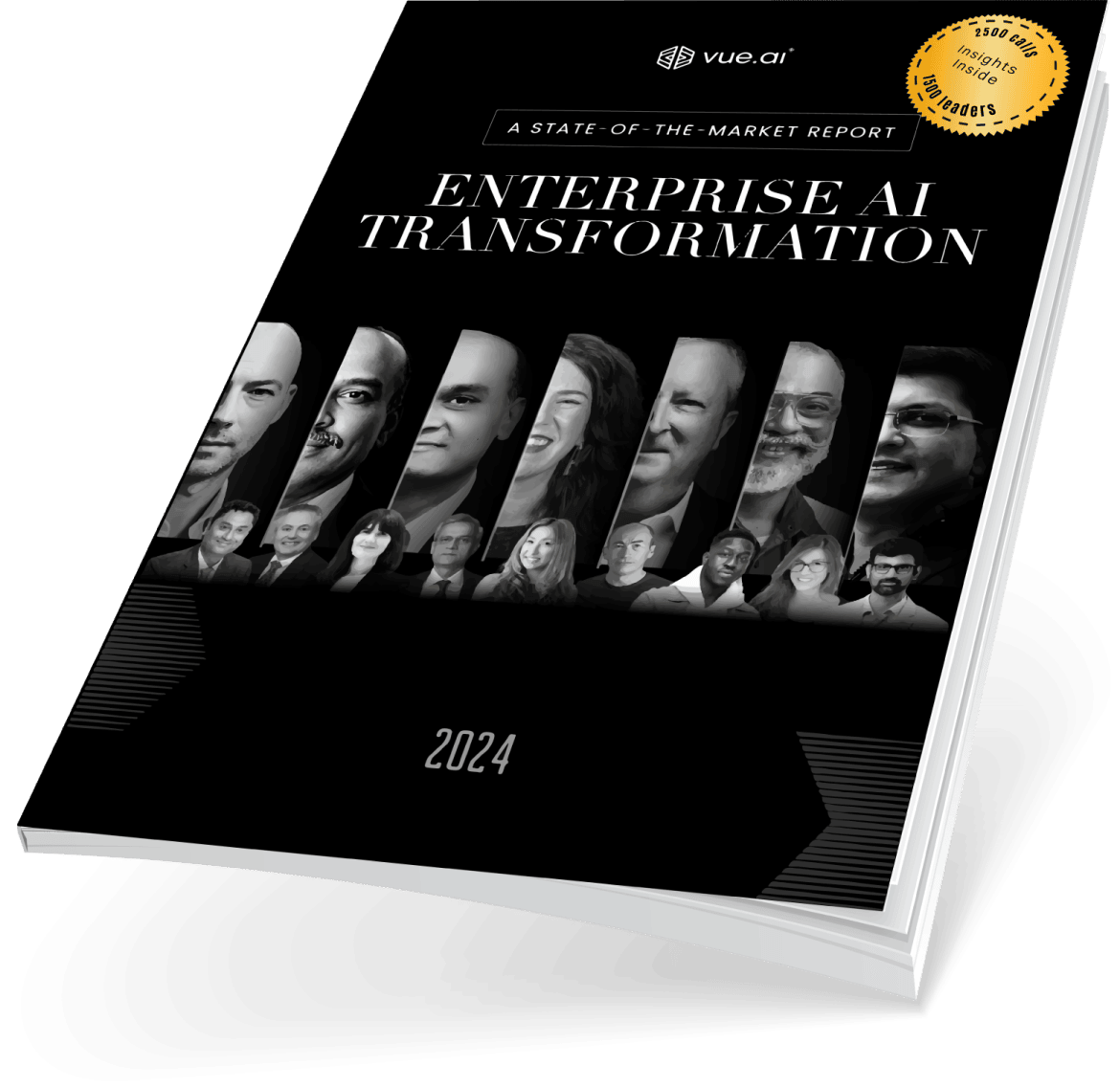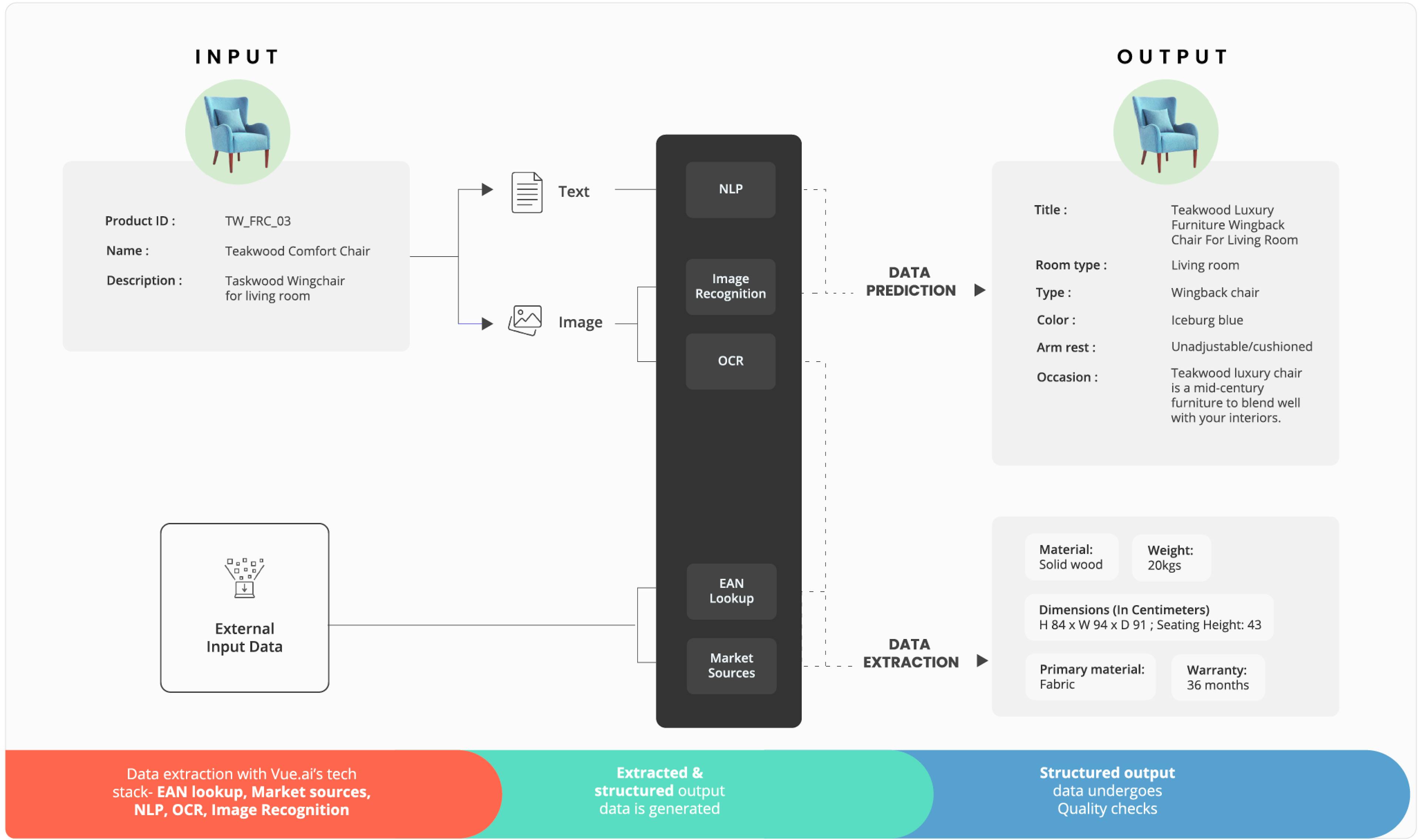
Vue.ai: Complete Buyer's Guide
Enterprise AI platform that eliminates manual product tagging while delivering custom taxonomy development and brand-specific visual recognition for fashion retailers.
Vue.ai is an enterprise-focused AI platform that transforms product catalog management through automated attribute extraction and intelligent tagging for fashion and retail businesses.
Market Position & Maturity
Market Standing
Vue.ai operates as an established enterprise AI platform with documented success across major fashion retail implementations, positioning itself in the premium segment of the AI product tagging market.
Company Maturity
The company's operational maturity is evidenced by its ability to support enterprise implementations requiring 6-8 full-time equivalent resources and comprehensive integration with legacy systems[42].
Growth Trajectory
Vue.ai's market validation emerges through high-profile customer implementations including Diesel's comprehensive transformation, which serves as a flagship case study demonstrating Vue.ai's ability to handle enterprise-scale deployments[33][40][48].
Industry Recognition
Vue.ai's competitive positioning focuses on custom taxonomy development and API-first enterprise integration, differentiating from general-purpose solutions like Clarifai or semantic tagging approaches offered by DataWeave[16].
Strategic Partnerships
Strategic partnerships with PIM providers and enterprise retail technology vendors position Vue.ai within the broader retail technology ecosystem.
Longevity Assessment
Vue.ai's longevity indicators include its ability to support ongoing customer relationships through continuous learning models and weekly retraining cycles, suggesting sustainable customer value delivery beyond initial implementation[31].
Proof of Capabilities
Customer Evidence
Vue.ai's flagship implementation with Diesel provides comprehensive evidence of its ability to handle complex enterprise requirements while delivering substantial business value.
Quantified Outcomes
Quantified Business Outcomes from the Diesel implementation include 85% reduction in time-to-market for new collections, 40% increase in conversion rates through enriched product discovery, and 30 hours weekly saved per team member in catalog management activities[61][62].
Case Study Analysis
Diesel's Enterprise Transformation represents Vue.ai's most significant capability demonstration, spanning 22,300 seasonal products across a 14-week implementation timeline[33][40][48].
Market Validation
Market Validation extends beyond individual implementations through Vue.ai's positioning within the enterprise AI tagging market, competing against comprehensive platforms rather than point solutions.
Competitive Wins
Custom Taxonomy Development capabilities are proven through Diesel's implementation of brand-specific attributes including 'iconic logo detection' for authenticity verification—a requirement that generic tagging solutions cannot address[33][40].
Reference Customers
Diesel's comprehensive transformation serves as a flagship case study demonstrating Vue.ai's ability to handle enterprise-scale deployments[33][40][48].
AI Technology
Vue.ai's technical foundation combines computer vision, natural language processing, and optical character recognition to create a comprehensive attribute extraction platform specifically optimized for fashion and retail applications.
Architecture
Vue.ai's API-first architecture enables seamless integration with existing Product Information Management systems through RESTful APIs, supporting real-time data synchronization without disrupting legacy workflows[33][39].
Primary Competitors
Primary Competitors include Pixyle.ai for fashion-focused attribute extraction, Impact Analytics' AttributeSmart for accuracy-focused implementations, and YesPlz AI for SMB-oriented rapid deployment[26][28][36][37].
Competitive Advantages
Competitive Advantages center on Vue.ai's 'iconic logo detection' capability that enables brand authenticity verification—a unique requirement that generic tagging solutions cannot address[62].
Market Positioning
Market Positioning analysis reveals Vue.ai competing against enterprise platforms like Clarifai and DataWeave's semantic tagging approaches[16], rather than SMB-focused solutions.
Win/Loss Scenarios
Win/Loss Scenarios favor Vue.ai when organizations require brand-specific attribute extraction, existing PIM integration, and willingness to invest in comprehensive catalog transformation.
Key Features

Pros & Cons
Use Cases
Integrations
Featured In Articles
Comprehensive analysis of Product Tagging for Ecommerce for Ecommerce businesses and online retailers. Expert evaluation of features, pricing, and implementation.
How We Researched This Guide
About This Guide: This comprehensive analysis is based on extensive competitive intelligence and real-world implementation data from leading AI vendors. StayModern updates this guide quarterly to reflect market developments and vendor performance changes.
66+ verified sources per analysis including official documentation, customer reviews, analyst reports, and industry publications.
- • Vendor documentation & whitepapers
- • Customer testimonials & case studies
- • Third-party analyst assessments
- • Industry benchmarking reports
Standardized assessment framework across 8 key dimensions for objective comparison.
- • Technology capabilities & architecture
- • Market position & customer evidence
- • Implementation experience & support
- • Pricing value & competitive position
Research is refreshed every 90 days to capture market changes and new vendor capabilities.
- • New product releases & features
- • Market positioning changes
- • Customer feedback integration
- • Competitive landscape shifts
Every claim is source-linked with direct citations to original materials for verification.
- • Clickable citation links
- • Original source attribution
- • Date stamps for currency
- • Quality score validation
Analysis follows systematic research protocols with consistent evaluation frameworks.
- • Standardized assessment criteria
- • Multi-source verification process
- • Consistent evaluation methodology
- • Quality assurance protocols
Buyer-focused analysis with transparent methodology and factual accuracy commitment.
- • Objective comparative analysis
- • Transparent research methodology
- • Factual accuracy commitment
- • Continuous quality improvement
Quality Commitment: If you find any inaccuracies in our analysis on this page, please contact us at research@staymodern.ai. We're committed to maintaining the highest standards of research integrity and will investigate and correct any issues promptly.